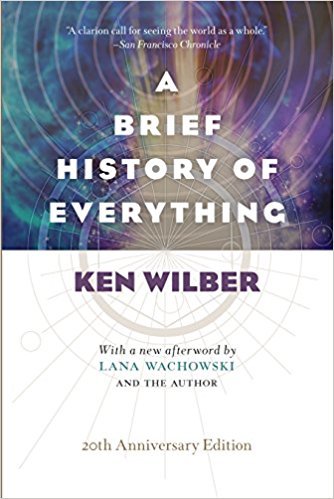What do you think?
Rate this book


A
Brief History of Everything
is an altogether friendly and accessible account of men and women's place in a
universe of sex, soul, and spirit, written by an author of whom
New
York Times
reporter
Tony Schwartz "No one has described the path to wisdom better than
Ken Wilber."
Wilber
examines the course of evolution as the unfolding manifestation of Spirit, from
matter to life to mind, including the higher stages of spiritual development
where Spirit becomes conscious of itself. In each of these domains, there are
recurring patterns, and by looking closely at them, we can learn much about the
predicament of our world—and the direction we must take if "global
transformation" is to become a reality.
Wilber
offers a series of striking and original views on many topics of current
interest and controversy, including the gender wars, modern liberation
movements, multiculturalism, ecology and environmental ethics, and the conflict
between this-worldly and otherworldly approaches to spirituality. The result is
an extraordinary and exhilarating ride through the Kosmos in the company of one
of the great thinkers of our time.
579 pages, Kindle Edition
First published January 1, 1996